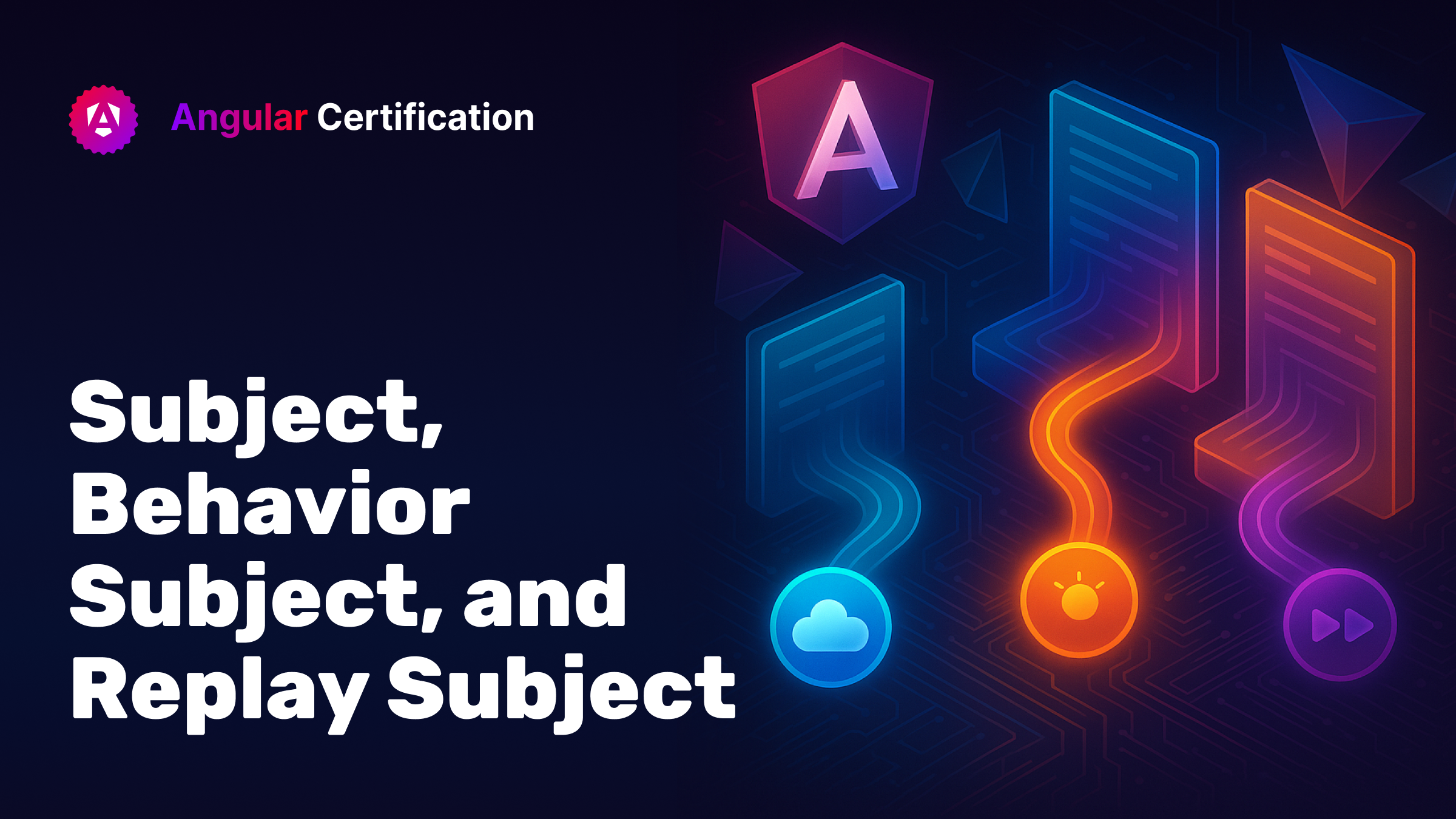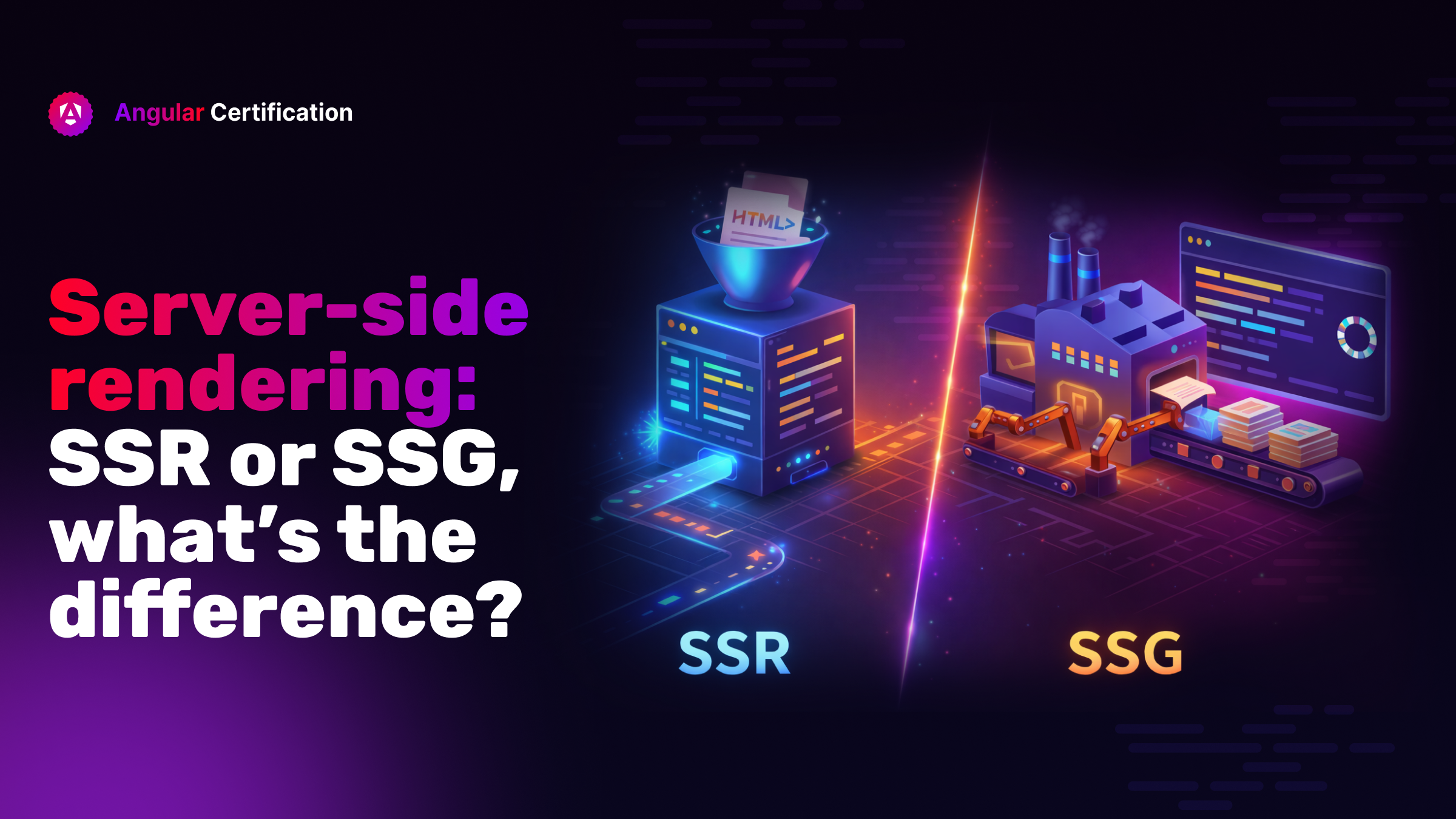
Subject, BehaviorSubject, and ReplaySubject
Angular’s reactive world revolves around Subjects, but the star is often the BehaviorSubject — why? Because it always starts with a value, and when you subscribe, you immediately get the latest emission (like receiving the current issue of a magazine). Meanwhile, ReplaySubject lets you go further by replaying multiple past values (no default), and a plain Subject is just “live only” — no past, no future. Let’s dig into when and why to use each.
Alain Chautard
October 8, 2025
BehaviorSubject
The most common type of Subject used with Angular is BehaviorSubject. Why is that? Because a BehaviorSubject has two exciting features that a plain Subject does not have:
- It starts with a default value, which means it is never empty.
- When we subscribe to a behavior subject, it will immediately give us the last emitted value.
Imagine subscribing to a magazine and receiving its latest published issue immediately. That’s what a BehaviorSubject does. This is helpful if you have components that need to know about the app’s current user. When the component subscribes to the “current user,” we want to get that info immediately and not wait for the next user update.

Also, since behavior subjects always have a value, they have a getValue() method that synchronously returns the current value.
ReplaySubject
A ReplaySubject is very similar to a BehaviorSubject, with two key differences:
- No default value
- Can replay more than just the last value
The constructor parameter determines how many values should be replayed to new subscribers:

Subject
A plain Subject has none of the above capabilities. When a value is emitted, current subscribers receive it, but future subscribers won’t. There is no replaying of the latest value(s), which makes plain Subjects less interesting to work with.
More certificates.dev articles
Get the latest news and updates on developer certifications. Content is updated regularly, so please make sure to bookmark this page or sign up to get the latest content directly in your inbox.

What Does Zoneless Angular Mean?
Explore what “zoneless” Angular means—how change detection works without Zone.js, what triggers updates instead, and the best practices (Signals, OnPush, async pipe) to get ready.
Alain Chautard
Mar 5, 2026

JavaScript Modules Explained: The Foundation of Modern JS Applications
A deep, practical explanation of JavaScript ES Modules: execution model, shared exports, strict mode, browser rules, and real-world implications.
Martin Ferret
Mar 3, 2026

Server-side rendering: SSR or SSG, what’s the difference?
This is a clear breakdown of SSR (Server-Side Rendering) vs SSG (Static Site Generation) in Angular—explaining how they work, key differences like runtime vs build-time rendering, hydration behavior, server requirements, and how to choose the right strategy per route.
Alain Chautard
Feb 26, 2026
Looking for Certified Developers?
We can help you recruit Certified Developers for your organization or project. The team has helped many customers employ suitable resources from a pool of 100s of qualified Developers.
Let us help you get the resources you need.

(a Cisco company)